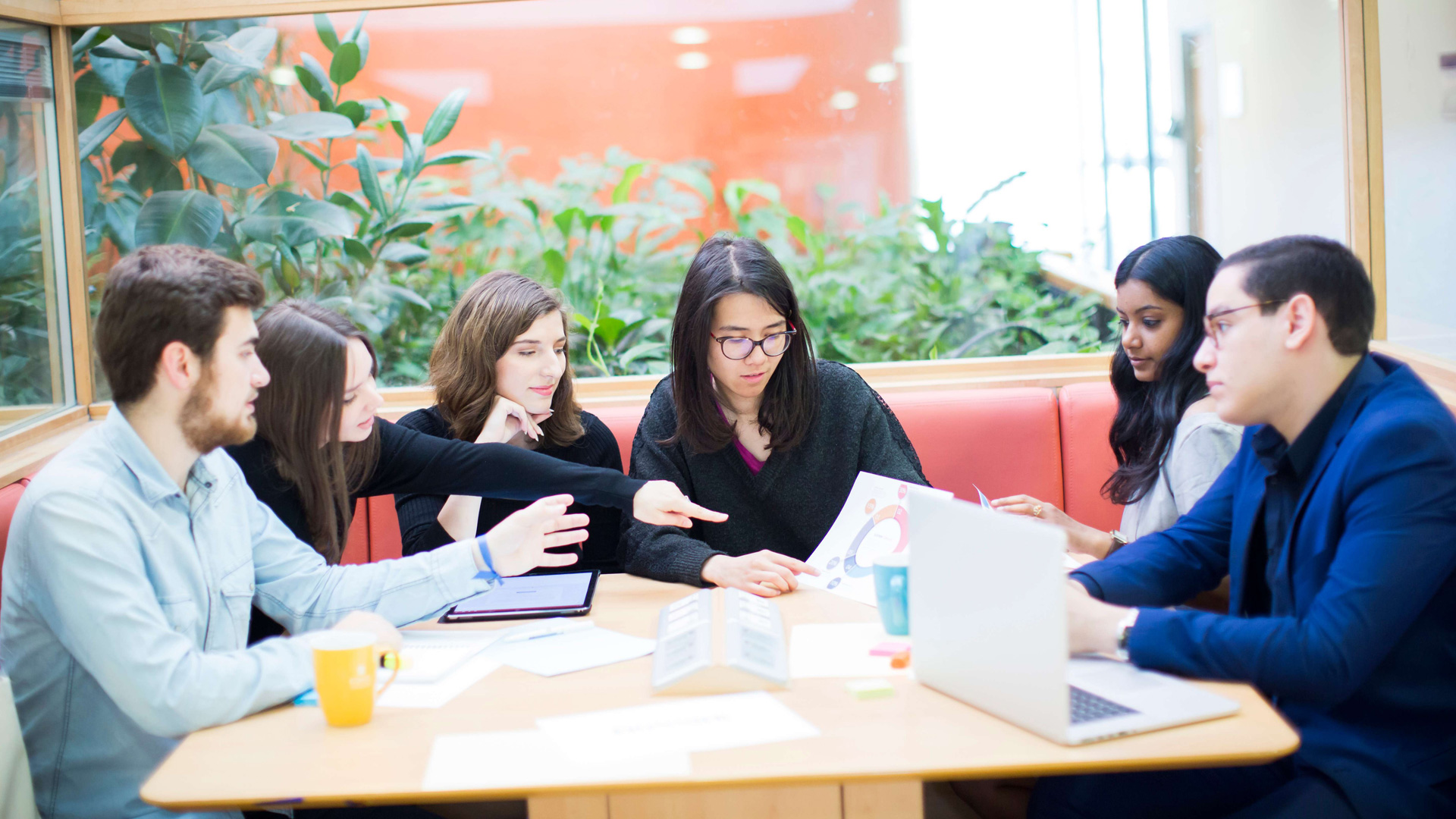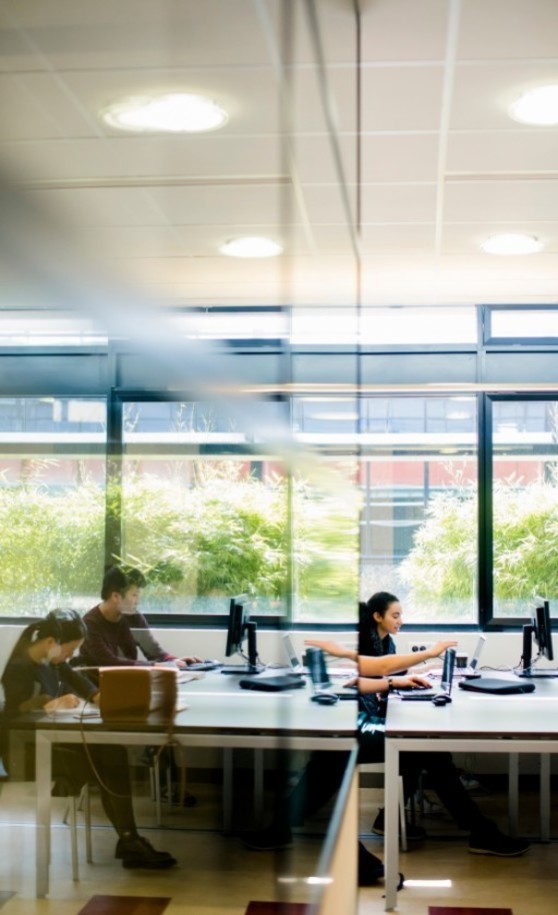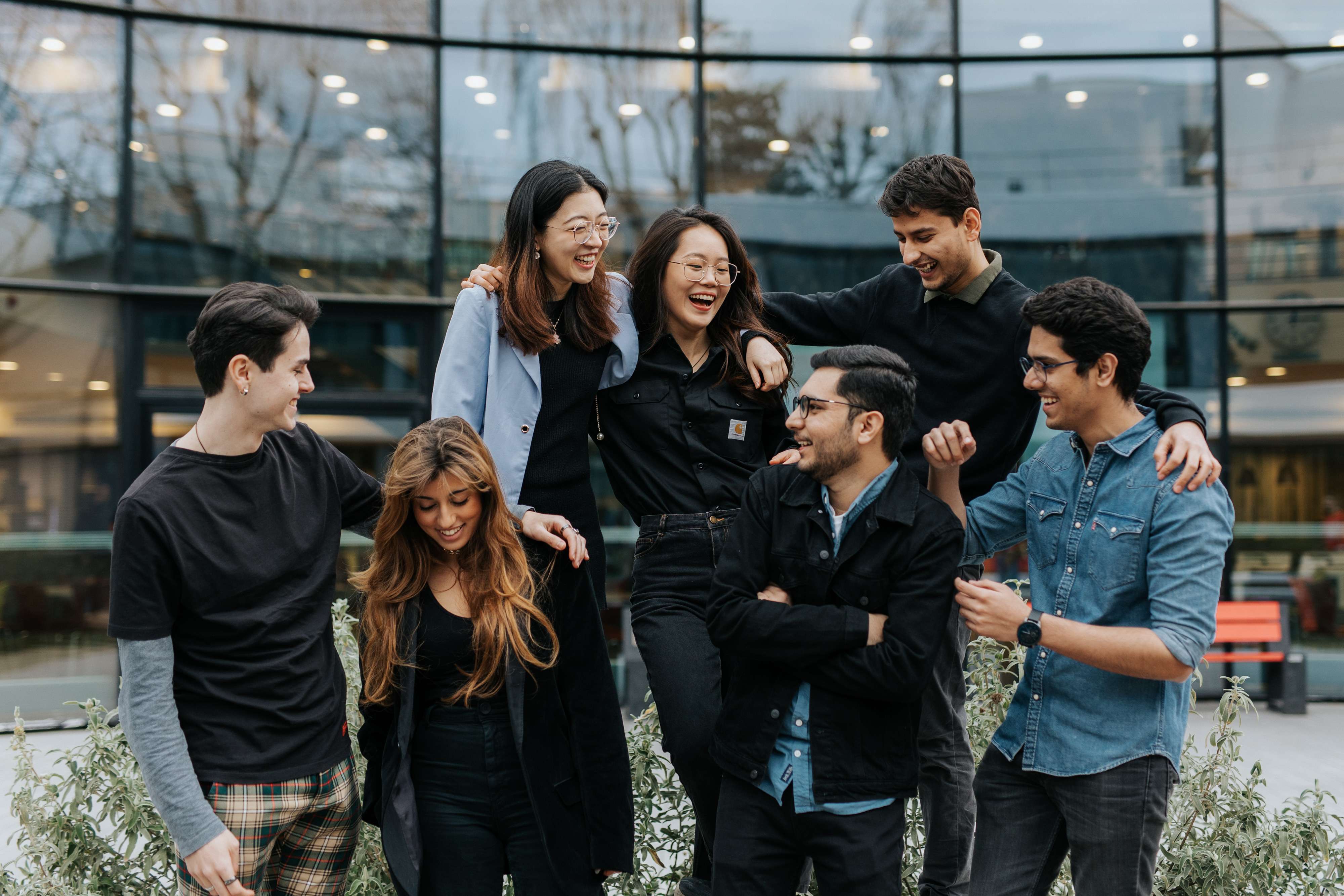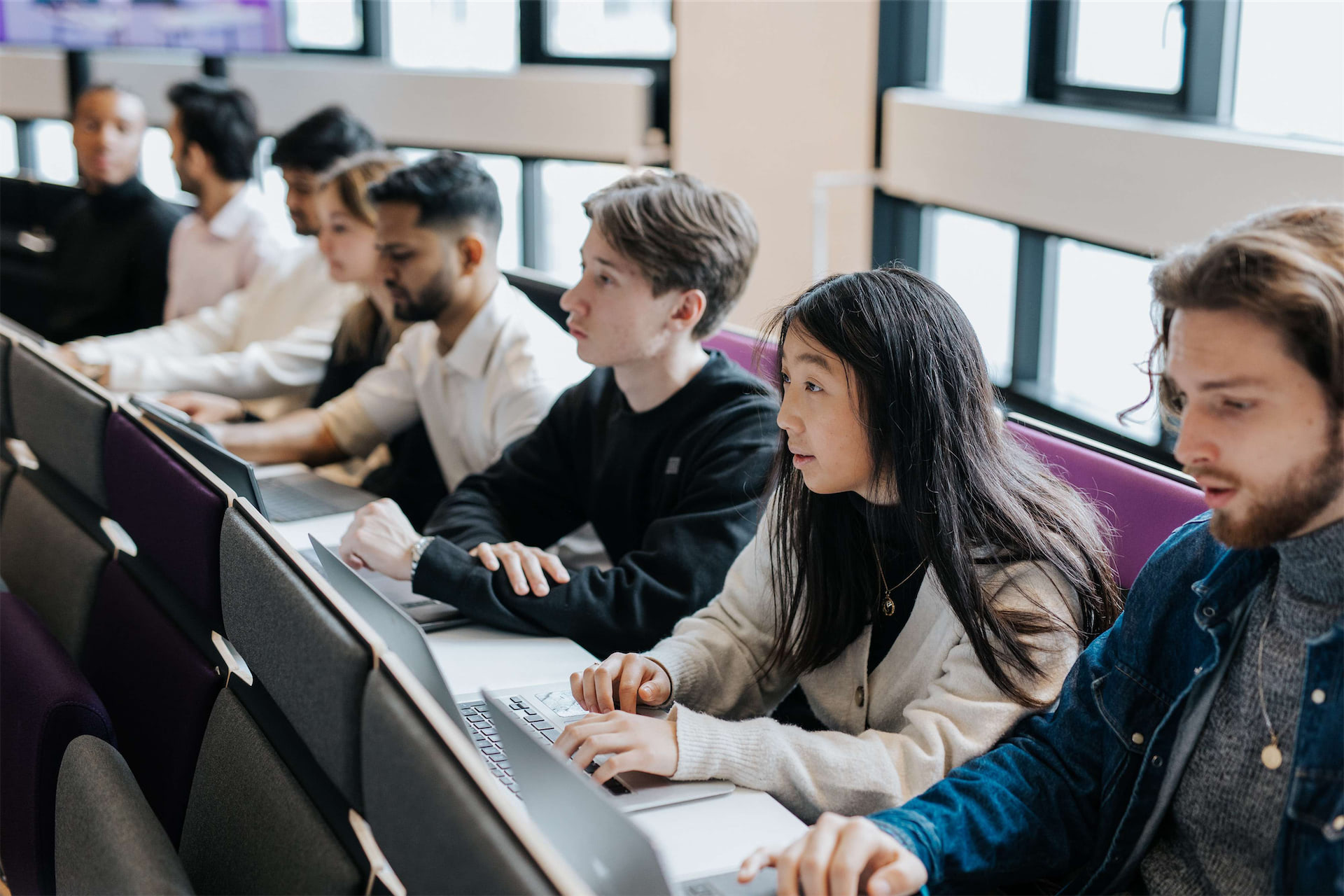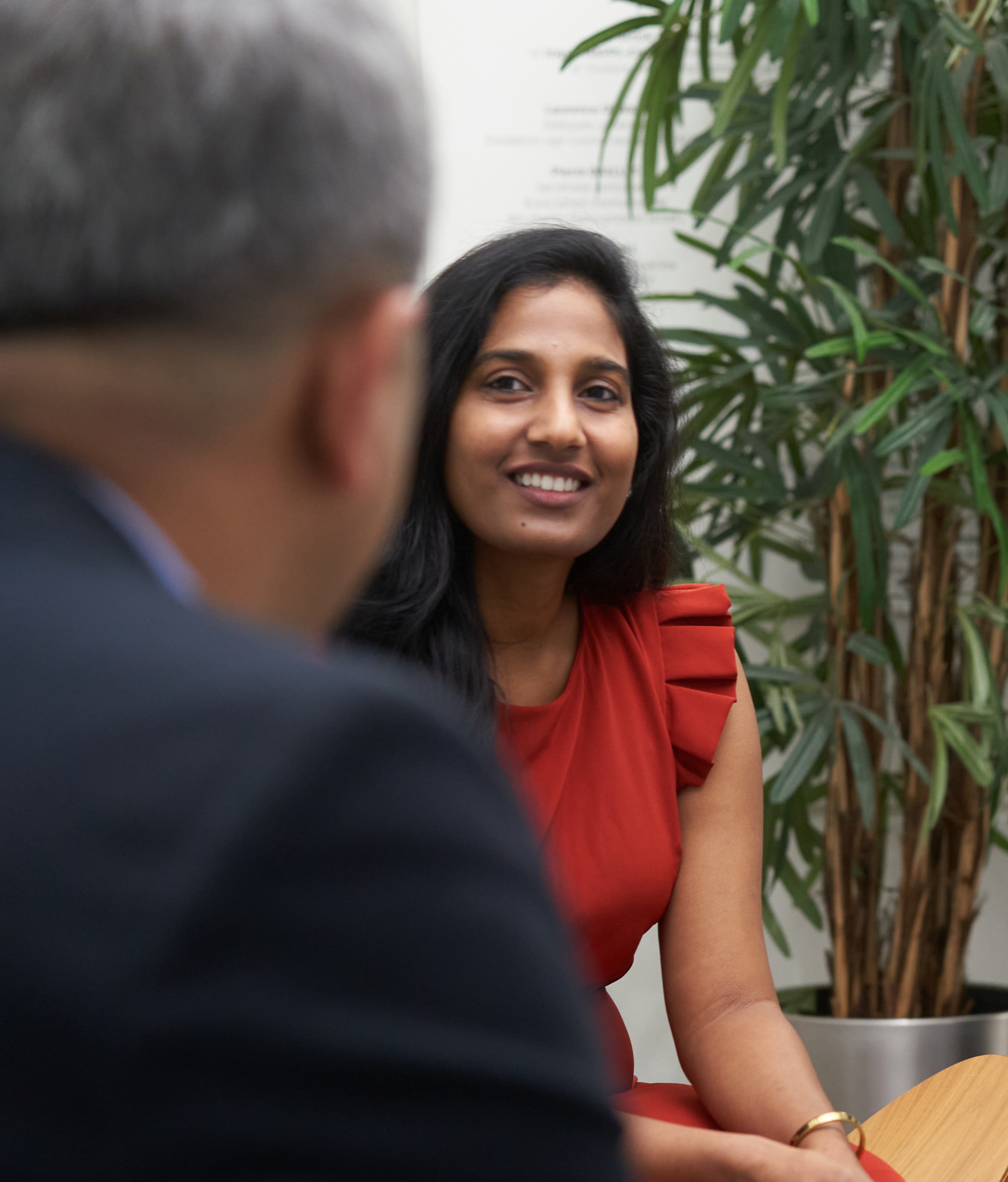Thriving in today’s global business environments requires a unique set of skills. One must be able to navigate through volatile, uncertain, complex, and ambiguous (VUCA) contexts with strategic thinking, critical reasoning, creativity, problem-solving, collaboration, and strong communication skills.
ESSEC Business School’s Master in Strategy and Management of International Business (SMIB) program is ranked 2nd worldwide in 2023 by QS among Masters in Management programs and 1st in Asia. The program offers customized tracks and specializations that equip participants with solid analytical, digital, strategic, innovation, and entrepreneurial skill sets that are highly sought after in a competitive job market.
As a student of SMIB, you will have the opportunity to participate in hands-on assignments and company projects, benefit from an outstanding learning experience, and learn from a world-class faculty. You will also join a global community of 71,000 ESSEC alumni, including more than 3,000 former SMIB participants.

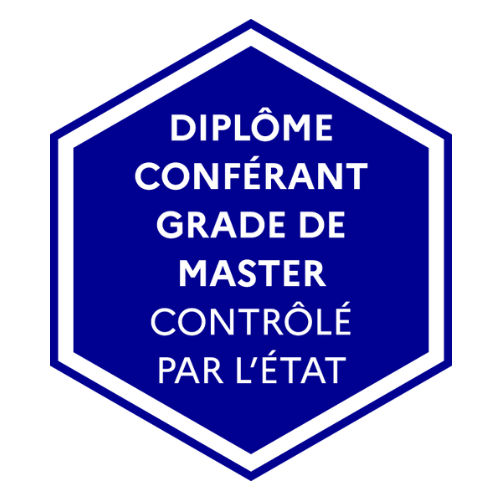
The Master in Strategy and Management of International Business (SMIB) program is authorized by the French Ministry of Higher Education and Research to award a recognised BAC+5 degree, Master’s Grade, to its students. Upon completion of the program, students would have accumulated a total of 300 ECTS to obtain a Master’s degree.
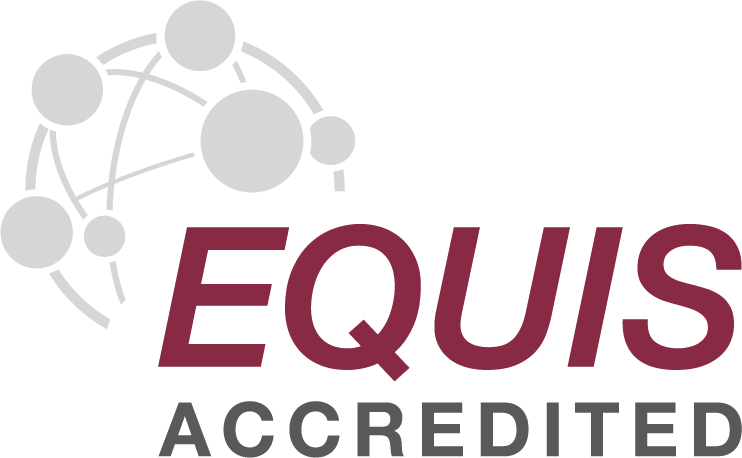
![]()
![]()
The academic excellence of ESSEC’s programs is recognized through its international standards in management training, and it holds the prestigious ”Triple Crown'' of accreditations: EQUIS, AACSB, and AMBA.

ESSEC Business School has been recognized by Campus France and the Ministry of Higher Education and Research for the quality of its international students’ welcome.
The school received the highest level that can be obtained from the "Bienvenue en France" certification, which is the third level.
This certification recognizes the quality of ESSEC's reception in all the criteria provided:
- The quality and accessibility of information
- The welcoming of new international students
- The academic offer
- Accommodations
- Campus life
- The quality of post-graduate follow-up

Academic Excellence
Choice of a specialized track in France or in Asia, each with a specific career goal in mind.
The chance to mix with a highly diverse class and teaching faculty.

Professional Experience
A professional business mindset in all aspects of the program.
Integrated professional experiences.

International Exposure
Exchange and double degree opportunities with leading academic partners.
An international business study trip.
Please note that the duration of the Master in SMIB is 2 years (Master 1 + Master 2) or 1 year (Master 2 only), depending on your background and latest degree.
|
MASTER 1 (M1) |
|||
|---|---|---|---|
|
In FRANCE |
|||
|
MASTER 2 (M2) |
|||
|
CORPORATE |
STRATEGY |
||
|
Focus on Western Countries IN FRANCE |
Focus on Asian Countries IN SINGAPORE |
Focus on Western Countries IN FRANCE |
Focus on Asian Countries IN SINGAPORE |
|
Option to do an Exchange/Double Degree |
|||
|
Academic Courses - Professional Workshops - Business Simulation - Case Studies - Company Missions - Soft Skills |
|||
You will build your foundations in strategy and understand how international complexity impacts business conduct. Through this first year, you will also discover your professional interests, to help you decide on which specialized track to choose in Year 2 (M2).
Some courses: Strategic Tools for Strategy Building, Introduction to Data, Business Conduct - An International Perspective, Sustainable Development and Managerial Challenges, Geopolitics
The M1 will be conclude by a 3-month (minimum) Company Mission.
-
Corporate Track - Focus on Western Countries
In collaboration with ![]()
This track is designed for students who want to work in developed Western countries, as a “full-member” of a traditional company, and eventually a family business as well. They aim at various positions with a strategic strandpoint and an international flavor. Students in this track may also go for a double degree or exchange program.
Some courses: SIMTRADE - Financial Markets Simulation, Western Geopolitics, Value Creation and Performance Management, Responsible Leadership and Sustainable Business Practices, Structuring a Leveraged Transaction (LBO), M&A
This track will be conclude by a 4 to 6-month Company Mission
-
Consulting Track - Focus on Western Countries
In collaboration with ![]() and
and ![]()
This track is designed for students who want to work as a consultant in developed western countries. They may work in strategy consulting, management consulting, marketing and communications consulting, etc.
Some courses: Intercultural Communication, Western Geopolitics, Strategic Consulting, Valuation and M&A, Law for Business Leaders
This track will be conclude by a 4 to 6-month Company Mission
-
Corporate Track - Focus on Asian Countries
This track is designed for students who want to work in developed countries in the Asia-Pacific region, as a “full-member” of a traditional company, and eventually a family business as well. They aim at various positions with a strategic strandpoint and an international flavor. Students in this track may also go for a double degree or exchange program.
Some courses: Innovation Management, Digital Transformation and Analytics, Financial Markets in Asia (Mega Trends, Strategies and Impacts), Negotiating Business Deals in Asia, ASC: The Consultant Toolkit Mastering, C-centric Strategy
This track will be conclude by a 6-month Company Mission or 7-month Asian Strategy Challenge
-
Counsulting Track - Focus on Asian Countries
This track is designed for students who want to work as a consultant in developed countries in the Asia-Pacific region. They may work in strategy consulting, management consulting, marketing and communications consulting, etc.
Some courses: Strategic Consulting in Asia: Tools and Issues, Creating and Capturing Value from Innovation, International Human Resources Management, Financial Markets (with Asian focus), ASC: The Consultant Toolkit Mastering
This track will be conclude by a 7-month Asian Strategy Challenge
More about the courses offered by the SMIB program by downloading the brochure
ONE-WEEK INTERNATIONAL BUSINESS SEMINAR
Whether you study in France or in Singapore, you will have the option of going for a one-week international business seminar that provides opportunities to meet local professionals and business leaders. Topics explored during the business seminar focus on entering the domestic market and local opportunities, threats and risks.
CAREER DAY
Whichever campus you study at, you will get the chance to meet professionals, mostly SMIB alumni, at different stages of their career and in different industries. They will share insights about the reality behind their job title and how they reached that position along with the necessary skills etc. This day is SMIB-exclusive and aims to make you better informed about what you are actually applying for when you embark on your job search.
SUSTAINABILITY WORKSHOPS AND SEMINARS
Balancing growth and sustainability has become key for businesses across all industries. Through the Sustainability Workshops and Seminars, students will be immersed in sustainability topics to strengthen their awareness and sensitivity towards related issues in seminar and workshops like Business and Society Seminar, Social and Sustainable Innovation Workshop, Responsible Innovation Bootcamp.
DIGITAL WEEK COMPETITION (DWC)
A vast student agency competition on real and current business cases where ESSEC students are considered as young digital consultants. Partner companies propose their digital transformation issues to 3 groups of students. Students then have 1 week to work in multi-specialty groups supervised by a coach, analyze, design, and present high-quality solutions on Friday, which are recognized and often actually adopted by the partners.
A competition to meet the needs:
- of students and prepare them to be part of the general movement of transformation in companies, organizations, and society.
- of companies looking for innovation and talents trained in digital, interdisciplinary approaches, and project management
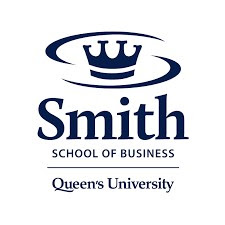 Smith School of Business, Queen’s University, Toronto, Canada
Smith School of Business, Queen’s University, Toronto, Canada
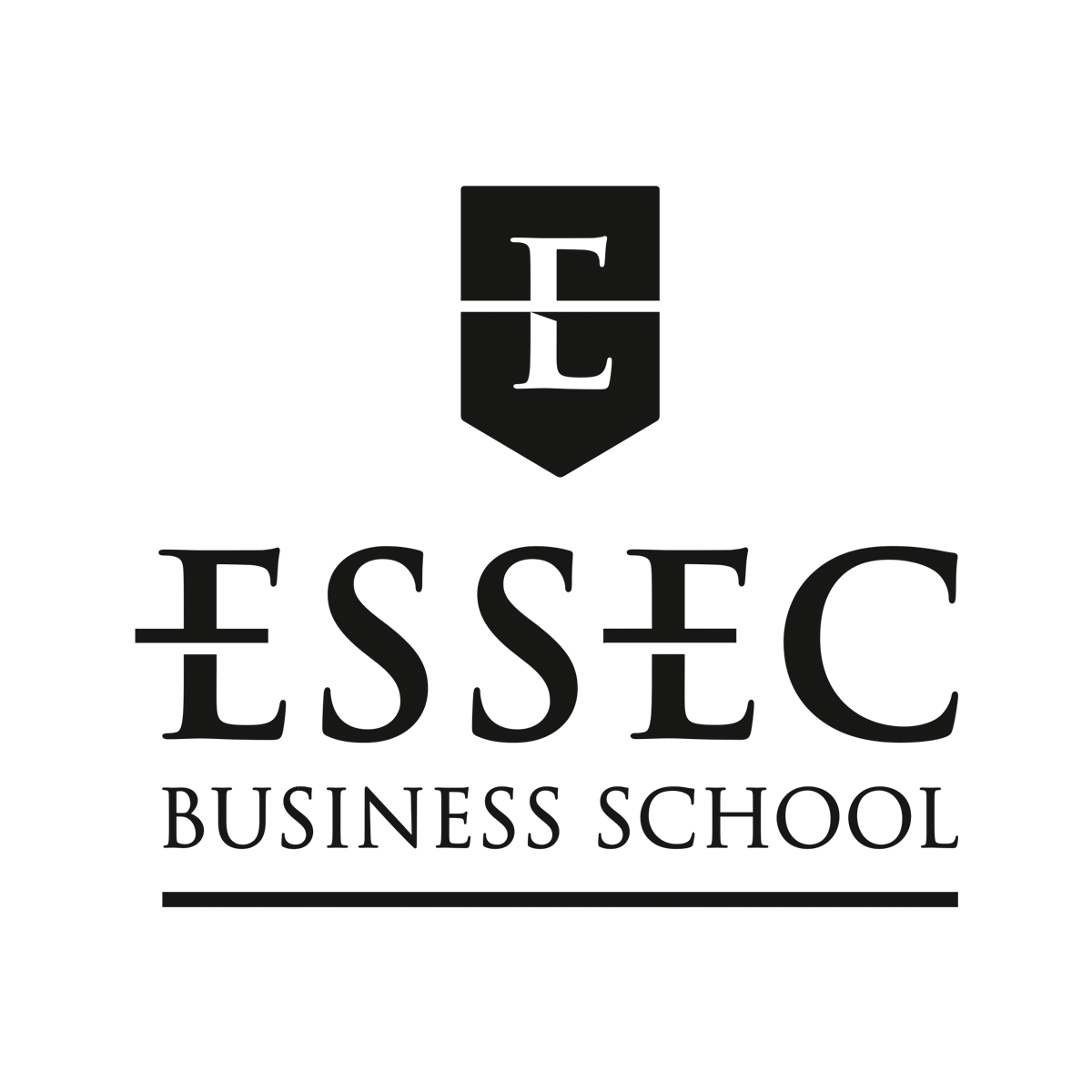 ESSEC Africa campus, Rabat, Morocco | Focus on the track Global Manager in Africa
ESSEC Africa campus, Rabat, Morocco | Focus on the track Global Manager in Africa

Darla Moore School of Business - University of South Carolina, Columbia, United States - Master in International Business

EGADE Business School, Tecnológico de Monterrey, Mexico - MBA | Focus on Entrepreneurship
YEAR 1 (MASTER 1, M1)
3-MONTH COMPANY MISSION
If you start the program in M1 (according to your background and degree), you will have the opportunity to start building your professional experience through the 3-month company mission, which takes place at the end of the year. This experience allows you to discover your professional interests to help you choose the specialized track that is most adapted to your goals during the M2. You will also be able to put the knowledge and skills you have learned to practice in a real-life context.
YEAR 2 (MASTER 2, M2)
4-6-MONTH COMPANY MISSION
The 4-6-month company mission enables you to apply your newly acquired skills and knowledge through hands-on experience in an organization anywhere around the globe.
7-MONTH ASIAN STRATEGY CHALLENGE
This 7-month consulting mission is the perfect opportunity for you to experience the consulting industry in Asia, allowing you to put in practice all the hard and soft skills needed to become a qualified consultant in the region. During the mission, you will work with your classmates as part of a real consulting team on a mission proposed by a company or an economic cluster located in APAC, under the supervision of an ESSEC coach.
YEAR-LONG DIGITAL AND INNOVATION MISSION with Kxiop
For students based at ESSEC Cergy campus (France)
This year long consulting mission in partnership with Kxiop is open to the students from both tracks 'Corporate' and 'Consulting'. Students work under the guidance of a team of consultants at Kxiop on a real client case throughtout the academic year.
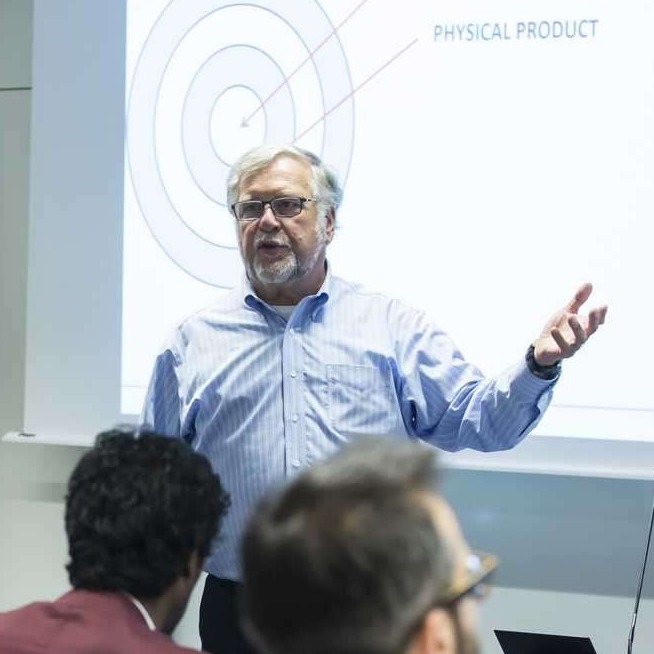

Anchored in a case-based approach, the pedagogy presents students with international business situations thanks to the Faculty that blends academic and professional perspectives for teaching excellence, with the majority of lecturers holding a Ph.D., thus being experts in their field, and representing more than 20 different nationalities.
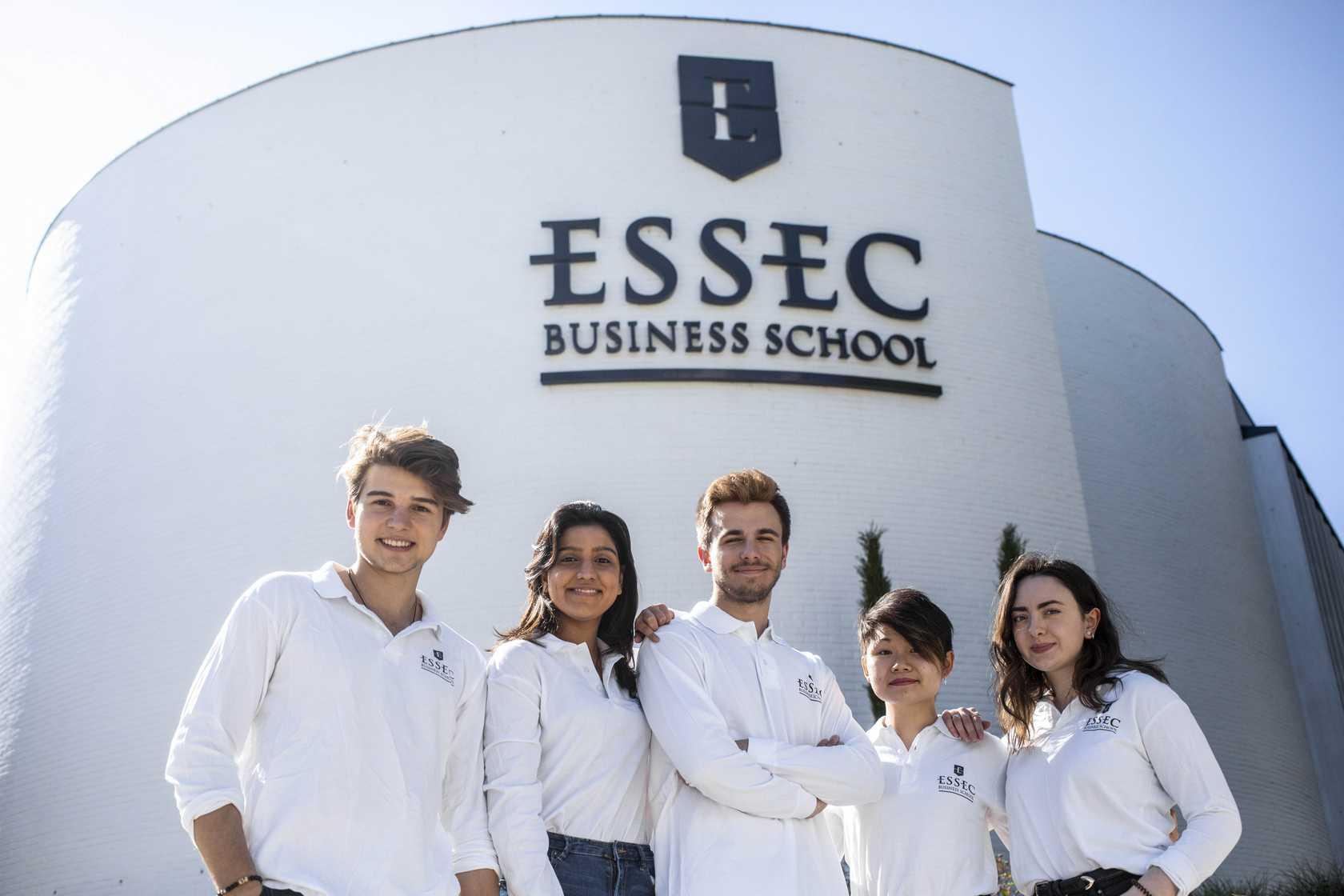

Find all the events related to the program here
**********************
Over the years, successive classes of students at ESSEC Business School have founded and managed more than 100 clubs and organizations, with a wide variety of themes: sports, cultural, humanitarian, international or civic, there is something for everyone!
These organizations, often founded and managed by the students themselves, aim to foster student life, promote the school's values, develop students' professional skills, and contribute to the social and cultural life of the campus.

SMIB for Smiles
SMIB for Smiles is a charity association of the ESSEC Business School's Master in Strategy & Management of International Business (SMIB). Be it making a contribution towards the education of underprivileged children or charity activities to uplift the living conditions of the homeless, we help NGOs and humanitarian organisations in the planning and execution of their goodwill missions. It reflects our commitment to the values of ESSEC Business School and enables our team to enhance their skill sets related to community development and mutual collaboration.
Created in 2015, Stratngo Consulting is the ESSEC Business School pro bono strategy association providing consulting services to NGOs. Driven by ESSEC Master in Strategy & Management of International Business (SMIB) students, Stratngo Consulting is willing to have a positive impact worldwide. Through the various backgrounds of our international team, we help NGOs by providing them pro bono services such as strategy consulting, marketing strategy and financial consulting in the fields of health, environment, education, human rights and culture.
ESSEC Paris-Cergy Campus
ESSEC's historic campus is located in the city of Cergy, about 30 km northwest of Paris. The campus covers more than seven hectares and offers modern and spacious facilities. It includes several buildings, a library, a gymnasium inaugurated in 2023, as well as areas for relaxing between classes.
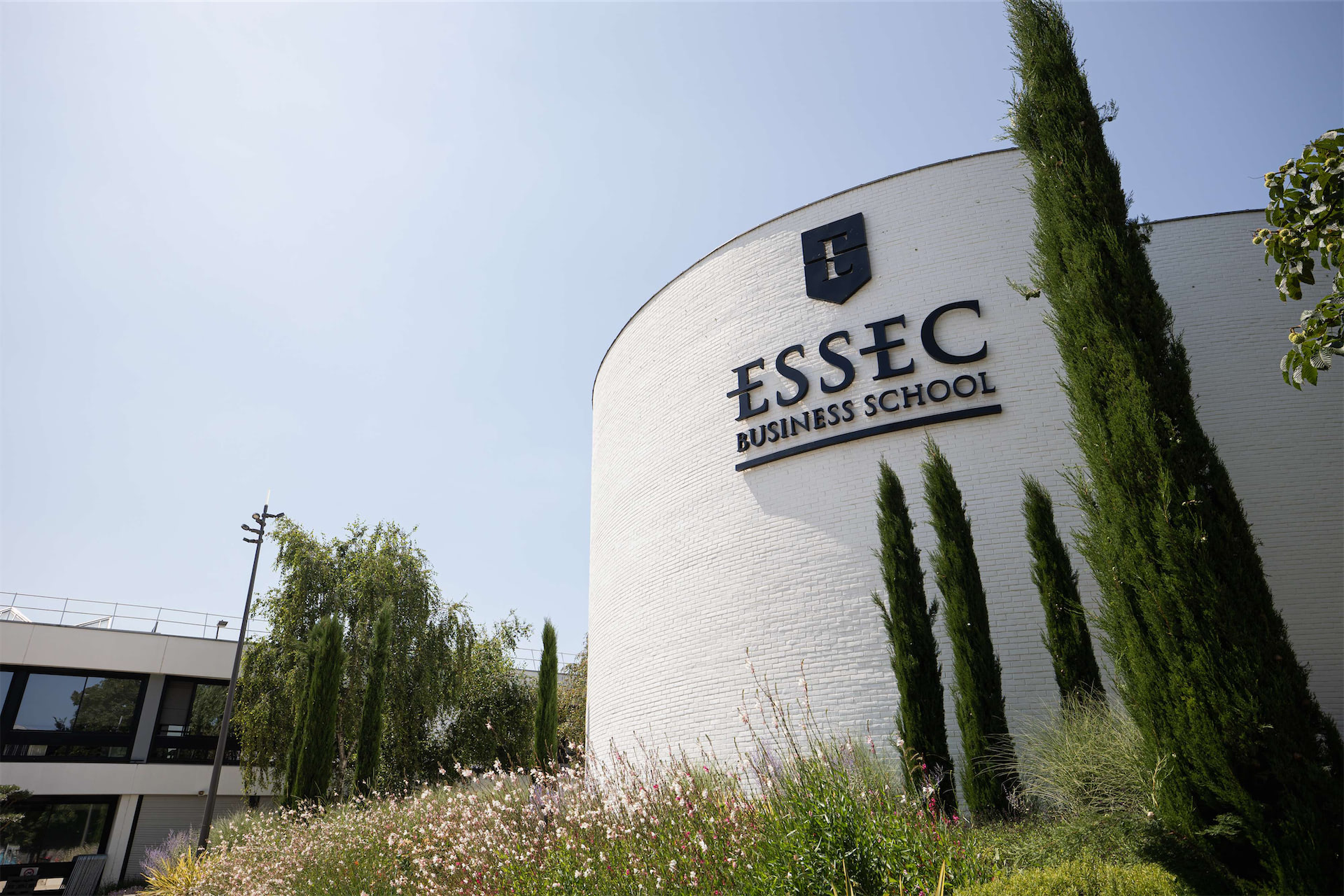
ESSEC Asia-Pacific Campus, Singapore
ESSEC's Asia-Pacific Campus, which was inaugurated in 2015, is located in Singapore, Asia, a dynamic city-state known for its thriving business environment and multicultural population. The campus is located in the heart of the city, close to major business centers and commercial areas.
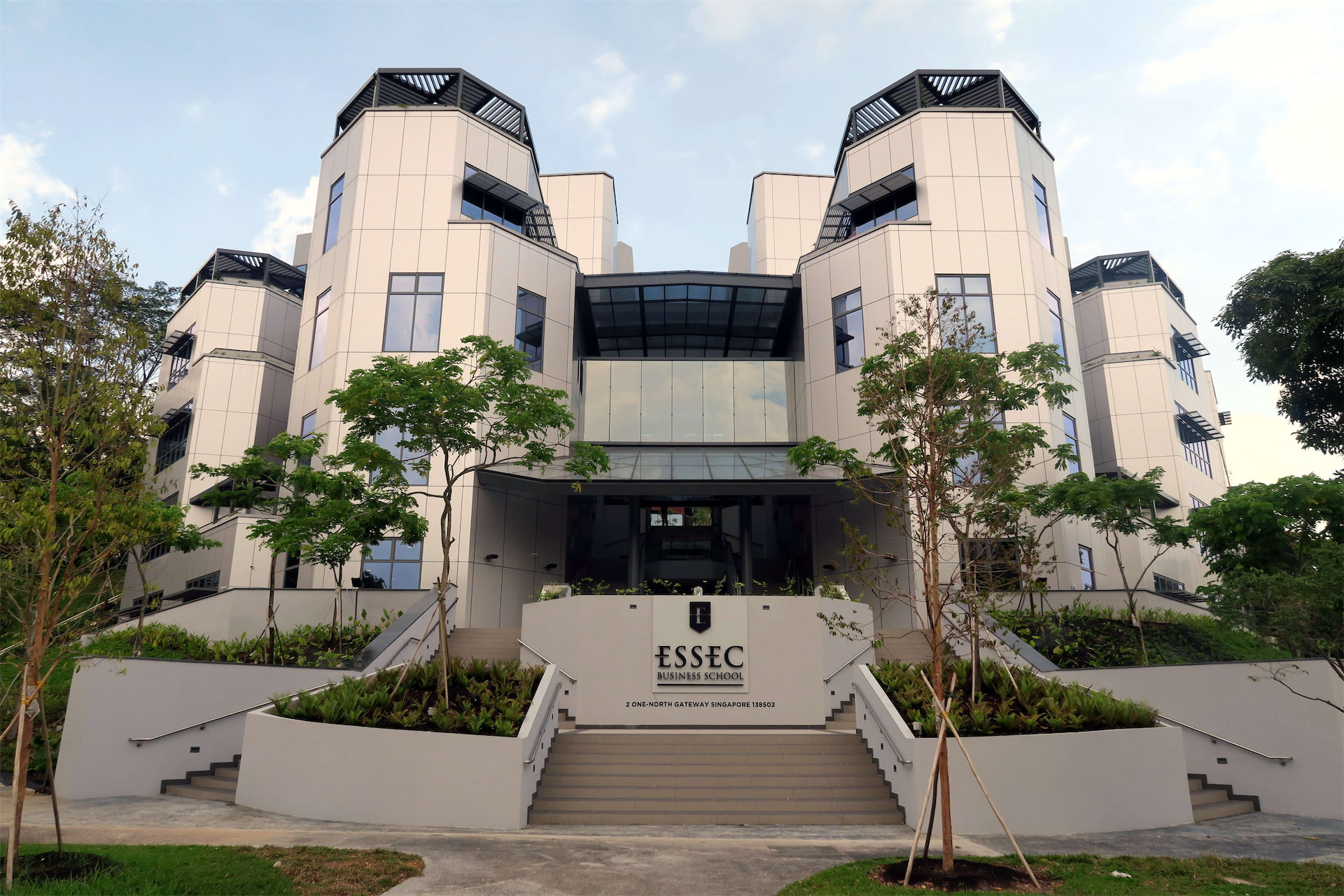

(RE)SET, 24S (LVMH), Autoteile, AB Science, Abbott, AbbVie, Accenture, Adyen, AEC Partners, AfriDoctor, Agorapulse, Air France, Air Liquide, Alcimed, Allianz, Alpha Financial, Markets Consulting, Alstom, Amazon, Amundi, Agrimeat, APACMed, April, AramisAuto, Arbiom, Assemblée Nationale, AstraZeneca, Aurexia, Axa Investment Managers, Back Market, Baobab+, Baxter International, Bayer, BCG, BearingPoint, BLACAZ., BNP Paribas, Bpifrance, British American Tobacco, Broychim, Buy2sell, CAD.42, Capgemini Invent, Carbo, Cardionovum, Carrefour, CBRE, Cider, CMA-CGM, CMI strategies, CNH Industrial, Coca-Cola, Compagnie de Phalsbourg, Crédit Agricole CIB, Crédit Mutuel Arkéa, Dalberg Global Development Advisors, Dassault Systèmes, Decathlon, Deloitte, DHL, Disneyland Paris, DriveQuant, Ecolab, EcoTree, Edenred, EHG Evolution Health Group, EKLR, Elsan, Engie, ERC Executive Agency, Eurogroup Consulting, EverWatt, Exton Consulting, EY, EY-Parthenon, Fast Retailing, Financière First National, Finexsi, Foodpanda, FRED, FutureBrand, Generali, GENYZ, GNT Capital, Gold Nest Capital, Grab, Grant Thornton International, Group CVA, Groupe Henner, Groupe ING, Groupe Renault, GSK, Guinot-Mary Cohr, HappyVore, Hermès, HIKVISION, Hilti, Holcim, HTX, Huawei, iGraal, Imerys, Innate Pharma, Ipsen Pharma, IQVIA, iXblue, J.P.Morgan, Janssen Cilag, Jicap Performance, Johnson & Johnson, Julhiet Sterwen, KPMG, KRDS Paris, Kxiop, L.E.K. Consulting, Laboratoires Pierre Fabre, Laboratoires Urgo, LaMarne Management, Left Bank Asset Management, LEK Consulting, LifeScan, Lingang Group, Liveo, Louis Vuitton Malletier, LVMH, Maestis, Mangopay, ManoMano, Marpico, Mars&Co, Massena Partners, McKinsey&Company, Ministère des Armées, Monitor Deloitte, MSD France, Murex, My Mother Agency, MyTrooperS, NEOEN, Network Rail, Niji, Nissan, Novagen Conseil, Novartis, NovaSource Power Services, Novocure, ObvioHealth, Odigo, Orange, Orphoz, Pernod Ricard, Pfizer, Philips, Porsche Consulting, Procter&Gamble, Proofpoint, Publicis Groupe, PwC, REI Habitat, Reitzel Groupe, Rexel, Roche, Roland Berger, Salsify, Sanofi, Schneider Electric, Sea Shepherd Global, Shopee, Sia Partners, Simple and New, Singapore Airlines, Snowflake, Société Générale, Sofrecom, Soitec, Solution BI France, Sopra Steria Next, SPREAD, Stanwell Consulting, Starburst, STEP Consulting, SumUp, Sunday, Tempow,Tereos, Thales, The Export-Import Bank of China, Thi Factory, TotalEnergies, Triago, Tuya Smart, Uber, Ubisoft, UCB Pharma, Unibail-Rodamco-Westfield, Vaisala, Vertone, Vinci Airports, Wavestone, WeWard, Wizzin, Yext, Yves Saint Laurent
This recruitment fair brings together around hundred companies. You will establish contacts with companies from all sectors of activity, such as: Air Liquide, Amazon, Bouygues, Carrefour, Ekimetrics, Groupe Casino, Henkel, L’Oréal, LVMH, Metro, Orange, Saint-Gobain, Groupe TF1, Unibail-Rodamco-Westfield, Unilever, Vinci, etc.
This fair brings together start-ups for a pitch and speed recruiting day.
During this recruitment fair you will establish exceptional contacts with consulting firms such as: Accenture, Accuracy, Bain & Company, BearingPoint, BCG, Capgemini Invent, KPMG, Mazars, McKinsey & Company, Roland Berger, Wavestone, etc.
During this recruitment fair you will establish exceptional contacts with financial institutions such as: Ardian, AXA, BNP Paribas, Bpifrance, Candriam, Centerview Partners, Crédit Agricole CIB, Hines, Moody’s, ODDO BHF, Qonto, Rothschild & co, Société Générale, UBS, etc.
Career guidance and advice
Throughout your time at ESSEC Business School, the Career Services will accompany you in defining your career plan and facilitating your entry into the professional world.
Through the support of the Career Services team, you will be able to:
- Learn more about yourself and enhance your experiences.
- Explore career opportunities, reflect and develop your personal and professional project.
- Define your internship/job search strategy and prepare yourself for numerous recruitment events through coaching with specialists
- Prepare your CV, LinkedIn profile and cover letter in an impactful manner, and develop your network efficiently.
- Prepare for different types of job interviews through role-playing exercises (pitching) and learn to position yourself well during salary negotiations.
- 17 000 exclusive job postings : internships, apprenticeships and jobs.
- 430+ meetings with recruiters based in France and all around the world : job fairs, company presentations and case studies.
- 4 000+ individual appointments with career consultants.
- Access to 5 learning platforms and 40+ articles, training and self-teaching modules
- 164 career related workshops.
When you join ESSEC Business School, you join a community and will discover the power of the ESSEC network.
ESSEC Alumni already has 71,000 graduates with diverse profiles dispersed in all corners of the world. With unique personalities, they share a common goal: to achieve their career objectives. As you enter ESSEC, you become a member of ESSEC Alumni and you remain one forever. This is the lifetime membership, that ESSEC has been the first French Business School with a global reach to put in place.
ESSEC Alumni is by your side at every stage of your career:
When you are a student, to guide you in finding professional opportunities through the network, exchanging with graduates, benefiting from various services to launch your start-up, and staying up to date with the latest news from the ESSEC community.
When you are a graduate, to support you throughout your professional life, help you develop your network and exchange with your peers, guide you in benefiting from services for your start-up, and allow you to rediscover the atmosphere of your ESSEC years.
Since its creation, ESSEC has always cultivated a spirit of entrepreneurship and innovation, which lies at the very core of its educational approach, research, and managerial practices.
- ESSEC Ventures is a structure that supports ESSEC students with business projects. It consists of an incubator, a talent incubator, and a seed fund. It also organizes numerous events bringing together entrepreneurs and investors.
- ESSEC Antropia is a structure that supports ESSEC students with social enterprise projects so that social, environmental, and economic considerations can come together to create a better world.
You will have to provide:
- 1 Management test score - mandatory
- 1 English test score - mandatory. Exempted if the candidate has completed at least 3 years in a higher education program in English at a 100% English-speaking institution.
|
Test |
Validity* |
Additional Information |
|---|---|---|
|
MANAGEMENT TEST |
||
|
5 years |
Select "ESSEC Business School-Master in Strategy and Management of International Business (SMIB)" |
|
|
GRE, GRE Test at Home (Verbal Reasoning, Quantitative Reasoning and Analytical Writing) |
5 years |
Institution Code: 0839 |
|
CAT |
1 year |
For Indian applicants |
|
2 years |
|
|
|
ENGLISH TEST |
||
|
The English tests must not be older than 2 years at the application deadline (application round you choose to apply in) |
Minimum score 95 Institution Code: 0520 |
|
|
Minimum score 6.5 |
||
|
Minimum score 175 |
||
|
Minimum score 850 |
||
* The tests must be valid at the time of the closing of the application session.
It can take several months to prepare and register for an exam slot for these tests. Keep this in mind before starting your application as, without these test scores uploaded in your application file, it will be incomplete.
Click here to take the GMAT Quiz and get an estimate of your score. Please note that you cannot apply with a GMAT Quiz score.
Specific test requirements for Double Degrees and Exchanges
If you plan to apply for a double degree or an exchange program as part of the Corporate Track at ESSEC France or at ESSEC Asia-Pacific, please note that the following specific requirements apply:
|
Double Degree or Exchange |
Management Test Score Requirements |
English Test Score Requirements |
Other Language Requirements |
|---|---|---|---|
|
Double Degree | Darla-Moore School of Business - University of South Carolina, Columbia, United States |
GMAT > 600 |
TOEFL > 100 OR IELTS > 7.5 |
- |
|
Double Degree | EGADE Business School, Tecnológico de Monterrey, Mexico |
GMAT > 600 |
TOEFL > 100 OR IELTS > 7.5 |
Fluency in Spanish |
|
Exchange | Smith School of Business, Queen’s University, Toronto, Canada |
GMAT > 600 |
TOEFL > 100 OR IELTS > 7.5 |
- |
|
Exchange | ESSEC Africa, Rabat, Morocco |
No minimum score requirement |
No minimum score requirement |
Fluency in French |
Create your candidate account. You can fill in the online application at your own pace and come back to it at any point. You can only apply once per program each academic year.
Once submitted, your campus and track choices are final.
All documents must be provided in English or French. Official translations will have to be provided for documents in other languages. Incomplete applications will not be processed. A complete online application includes the following items.
|
Items |
Description |
|---|---|
|
Academic Transcripts |
Authenticated copies of transcripts relating to the currently pursued degree or the one achieved last. Simple copies will not be accepted. |
|
Degree(s) obtained |
Authenticated copy of the accredited higher education degree achieved last. If you have not achieved the required degree yet, upload an enrolment certificate stating the expected graduation date. |
|
1 Curriculum Vitae (CV) |
One page maximum |
|
1 Identity Card |
Passport or National Identity card, only for EU students (double-sided) |
|
1 Photograph |
A recent ID photo |
|
1 English Test |
Copy of official score (test taker version) |
|
1 Management Test |
Copy of official score (test taker version) |
|
2 x References |
One academic and one professional reference is highly recommended. |
|
Application Fee |
100 € non-refundable and payable online |
Once you have completed your online application and have attached all the supporting documents, the final step is to submit your online application. Once you have submitted your application online, you cannot make changes to your application. Please keep in mind that there are several rounds of applications. The deadlines to submit your application are listed in the table above.
Once submitted, your application will be reviewed by the admission committee. Each part of your application is taken into account, hence the need to complete it conscientiously. Kindly note that in case clarification is needed, an interview may be scheduled.
You will be notified about the results by email (refer to the above-mentioned timetable).
Please note that once your admission is confirmed, you will not be able to change tracks anymore.
Following your admission, make sure to secure your seat in the program by paying the non-refundable deposit within 2 weeks. This amount will be deducted from your tuition fee. Visit the "Financing" tab for more information.
The base tuition fee is the same, regardless of exchange choice or if you choose to pursue a double degree.
|
STUDENTS COMPLETING THE PROGRAM IN 1 YEAR (Master 2 - M2) |
||
|---|---|---|
|
Valid for 2024 intake for France and Singapore Campuses |
||
|
|
EU Citizens |
NON-EU Citizens |
|
Total Tuition |
€24,900 |
€27,900 |
|
Deposit The non-refundable deposit is payable within two weeks from the day of admission and is deducted from the total tuition fee |
€5,000 |
€5,000 |
|
Remaining The remaining tuition fee is payable before August 31st of the academic year |
€19,900 |
€22,900 |
|
Service Fee The service fee is payable once in addition to the total tuition fee before joining ESSEC (irrespective of the duration of the program) |
€1,980 |
€2,080 |
|
STUDENTS COMPLETING THE PROGRAM IN 2 YEARS (M1 + M2) |
||||
|---|---|---|---|---|
|
Valid for 2024 intake for France and Singapore Campuses |
||||
|
|
Master 1 (M1) |
Master 2 (M2) |
||
|
|
EU Citizens |
NON-EU Citizens |
EU Citizens |
NON-EU Citizens |
|
Total Tuition |
€13,300 |
€13,300 |
€24,900 |
€27,900 |
|
Deposit The non-refundable deposit is payable within two weeks from the day of admission and is deducted from the total tuition fee |
€5,000 |
€5,000 |
€5,000 |
€5,000 |
|
Remaining The remaining tuition fee is payable before August 31st of each academic year |
€8,300 |
€8,300 |
€19,900 |
€22,900 |
|
Service Fee The service fee is payable once in addition to the total tuition fee before joining ESSEC (irrespective of the duration of the program) |
€2,080 |
€2,280 |
€1,980 |
€2,080 |
DESCRIPTION: To sustain the academic excellence of the program and enhance the education and experience of our students, ESSEC Business School offers the Academic Excellence Scholarship to outstanding candidates and the Diversity Scholarship to students with varied cultural perspectives and backgrounds.
ELIGIBILITY: Academic Excellence Scholarship - Open to all applicants and awarded on the basis of the overall quality of their application i.e. academic excellence demonstrated in the file: outstanding Management test scores, strong motivation, etc.; Diversity Scholarship - Demonstrate academic excellence and bring diversity in terms of citizenship, prior education or background.
AMOUNT: Can cover up to 50% of total tuition fees.
PROCEDURE: Scholarship decisions are made during the application procedure. There is no additional application to fill out or request to make. Selected students will be notified upon being offered a place on the program.
DESCRIPTION: Since 2021, ESSEC allows female students admitted to the Master in Strategy and Management of International Business (SMIB) to receive a scholarship.
ELIGIBILITY: All female students admitted to the Master in Strategy and Management of International Business (SMIB) are eligible.
AMOUNT: Up to 50% of total tuition fees.
PROCEDURE: Scholarship decisions are made during the application procedure. There is no additional application to fill out or request to make. Selected students will be notified upon being offered a place on the program.
DESCRIPTION: The French Ministry of Foreign Affairs funds EIFFEL scholarship.
ELIGIBILITY: Reserved for non-French candidates, double nationality included, no older than 30 years old at the time the selection committee will meet (around mid-March).
AMOUNT: A monthly allowance of €1,181 and covered costs of one international return journey and social security cover.
PROCEDURE: ESSEC submits applications for EIFFEL scholarships on your behalf. Your application should be completed and submitted therefore in the first round of applications.
DESCRIPTION: A platform to channel the influence of Lebanese finance executives worldwide to establish stronger bonds, nurture the next generation and promote Lebanon.
ELIGIBILITY: Candidate must be Lebanese or of Lebanese descent, achieve and maintain academic excellence, demonstrate an interest in pursuing a career in Finance and must be in financial need.
AMOUNT: Up to 12,000 USD per year for the duration of the academic program.
PROCEDURE: ESSEC Business School submits applications for LIFE scholarships on your behalf.
DESCRIPTION: The Lee Kuan Yew (LKY) Scholarship is the premier postgraduate scholarship in Singapore. Set up in 1991, the scholarship marks Singapore's continuous effort to recognize outstanding individuals with the aptitude and inclination to contribute to Singapore and its society.
ELIGIBILITY: Candidates holding Singaporean citizenship will undergo a comprehensive evaluation on their leadership potential and accomplishments in their respective fields. Candidates should also demonstrate the potential to thrive in their professions, ultimately contributing to Singapore and its advancement.
AMOUNT: Scholarship recipients will receive full tuition fees coverage and an annual allowance of S$50,000 for up to 2 years if they are pursuing a Master’s degree.
PROCEDURE: Candidates can apply via the Public Service Commission Portal (Singpass login required). All applications will need to be supported by referee reports and submitted online by 10 March 2024.
As an ESSEC student, you can take out a preferential-rate bank loan, which covers full tuition and is repaid starting at the end of your first year of work.
ESSEC has developed a partnership with major French bank branches located in Cergy (LCL, BNP Paribas and Société Générale) to give you special terms and conditions.
Loan applicants are required to have a guarantor living in France. According to the banks, the guarantor must earn enough to cover the monthly loan payments but also be a French citizen, a close family member and/or both. Additional fees and expenses will be the responsibility of the student.
International Students from 150 different nationalities admitted to the program may apply to Prodigy Finance loans. Contrary to the banks in France and Singapore, Prodigy does not require a collateral or co-signer. These loans are granted based on the student's future earning potential and do not take into account credit history.
Students may apply online on the Prodigy website. There is no hidden fee or early repayment fee. Interest rates may vary depending on individual profiles. Funds are directly disbursed to the school in euro (€) so no exchange rates are borne by the student. Disbursement starts from September and loan application processing time may go up to a month and a half. The sooner you apply, the better.
We advise you to read carefully the Prodigy website to check your eligibility before applying.
Many US citizens or permanent residents opt to take out the US Federal Stafford and private Sallie Mae loans. These loans can cover up to the full cost of attendance and all applicants having a co-signer in the US are eligible for these loan programs. ESSEC is listed as “ESSEC Business School", and has a code number of G30959.
On-campus missions
ESSEC employs its students in a wide variety of functions which can help towards everyday living costs. These are part time short-term contracts in for example taking up the role of a student ambassador, assisting teachers, carrying out market research, helping out at conferences and events, contributing to social media, etc.
